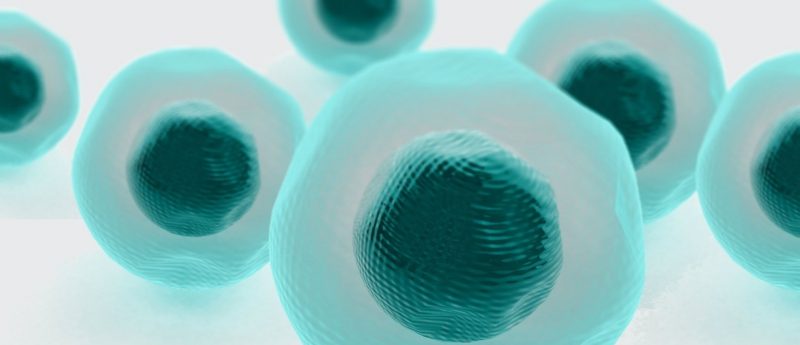Organ implant successfully promotes regeneration of esophagus

Researchers from Biostage (Holliston, MA, USA) and the Mayo Clinic (Rochester, MN, USA) have demonstrated successful regeneration of the esophagus in large animal models following implantation of the Cellspanâ„¢ organ implant.
Biostage (Holliston, MA, USA) have announced the successful pre-clinical trial of the Cellspanâ„¢ organ implant for esophageal regeneration following injury, in a collaboration between Biostage and researchers from the Mayo Clinic (Rochester, MN, USA). Following the successful proof-of-concept trial, the team are seeking US FDA approval in the hope that the technique could soon be used to treat patients with esophageal, bronchial and tracheal cancers or injury.
Cellspan organ implants comprise a propriety biocompatible synthetic scaffold that is seeded with stem cells from the recipient. In this pre-clinical trial, a predictive large animal model was used in a proof-of-concept study to investigate the success of the Cellspan scaffold in esophageal regeneration.
Following surgical removal of a portion of the esophagus, the scaffolds were implanted into the animal models. The animals returned to a solid diet within 2 weeks and the scaffolds, which are intended to be in place only temporarily, were later removed using an endoscope. After 2.5 months, the subjects displayed complete regeneration of the epithelium and other esophageal tissue layers and appeared otherwise healthy with no significant side effects.
Saverio La Francesca, Biostage, commented: “Beyond the unparalleled evidence of tissue regeneration, we are also very encouraged that there has been no evidence of leakage or infection at the surgery sites in any of the animals studied so far. Such issues pose regular and life-threatening dangers for esophageal cancer patients surgically treated with the existing standards of care. These results represent a dramatic step forward in our quest to bring new solutions to patients with life-threatening conditions.”
The researchers behind Cellspan highlighted that existing organ implants incorporate the scaffold into the body and existing tissue grows into it. However, this approach is susceptible to rejection from the immune system. By contrast, the Cellscan implant is designed as a temporary structure: it delivers stem cells to facilitate regeneration and is then removed.
The implant has a tubular structure that is seeded with stem cells from the patient to stimulate regeneration and reduce the likelihood of immune rejection. Following initial regeneration, the scaffold is removed, permitting further growth of the damaged tissue.
Jim McGorry, Biostage CEO, stated, “We could not have asked for a more encouraging outcome from these large-animal studies. The data suggests our Cellspan esophageal implant could be a break-through alternative to the current surgical procedures used to address esophageal cancer.”
Biostage now aim to progress to GLP studies in order to advance soon to clinical trials. They are seeking FDA approval and hope that the technology could one day be used to treat patients with cancer and injuries of the esophagus, trachea and bronchus.